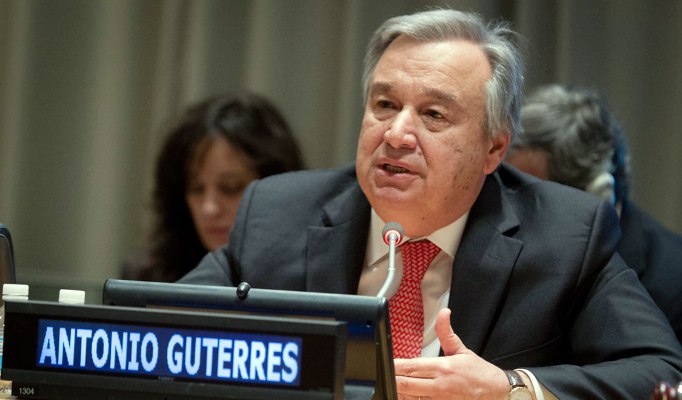South Sudan’s ceasefire largely holding, says UN chief
September 15, 2019 (JUBA) – The ceasefire between South Sudan government and the armed opposition faction (SPLA-IO) remains intact, underscored by their efforts against National Salvation Front (NAS) rebels, Antonio Guterres, the UN Secretary General said.

“Fighting in Payai, outside Lobonok, at the end of July resulted in NAS ceding control of a gold-mining area to SPLA-IO forces,” he said.
The report largely blames the NAS faction led by Thomas Cirillo of being behind the primary causes of insecurity as well as the high levels of violent crime owing to the secondary effects of the conflict.
Guterres, in his report on South Sudan, also pointed to the alleged recruitment within NAS and cross-border movement of their forces in Western Equatoria region to the Democratic Republic of the Congo (DRC) and from Eastern Equatoria to Uganda, among others.
“In Eastern Equatoria, NAS activity has been limited to cross-border areas around greater Magwe, where ethnic alliances provide a small area of allegiance,” partly reads the UN chief’s report.
Meanwhile, the Secretary General’s reports also highlighted the detentions of suspected NAS collaborators by the National Security Service and South Sudanese army in the Greater Equatoria region.
It further said government and SPLA-IO operations have induced displacement and fear and heightened mistrust of state security forces, as illustrated by the razing of some 60 tukuls in Torit West.
South Sudan descended into war in mid-December 2013 when Kiir accused his former deputy-turned rebel leader accused of plotting a coup.
In September 2018, the rival factions involved in the conflict signed a peace deal to end the conflict that has killed tens of thousands of people and displaced over 2 million people in the country.
The power-sharing arrangements under the deal were supposed to take effect in May, but the process was delayed by six months until November as both sides disagreed on security arrangements.
(ST)
